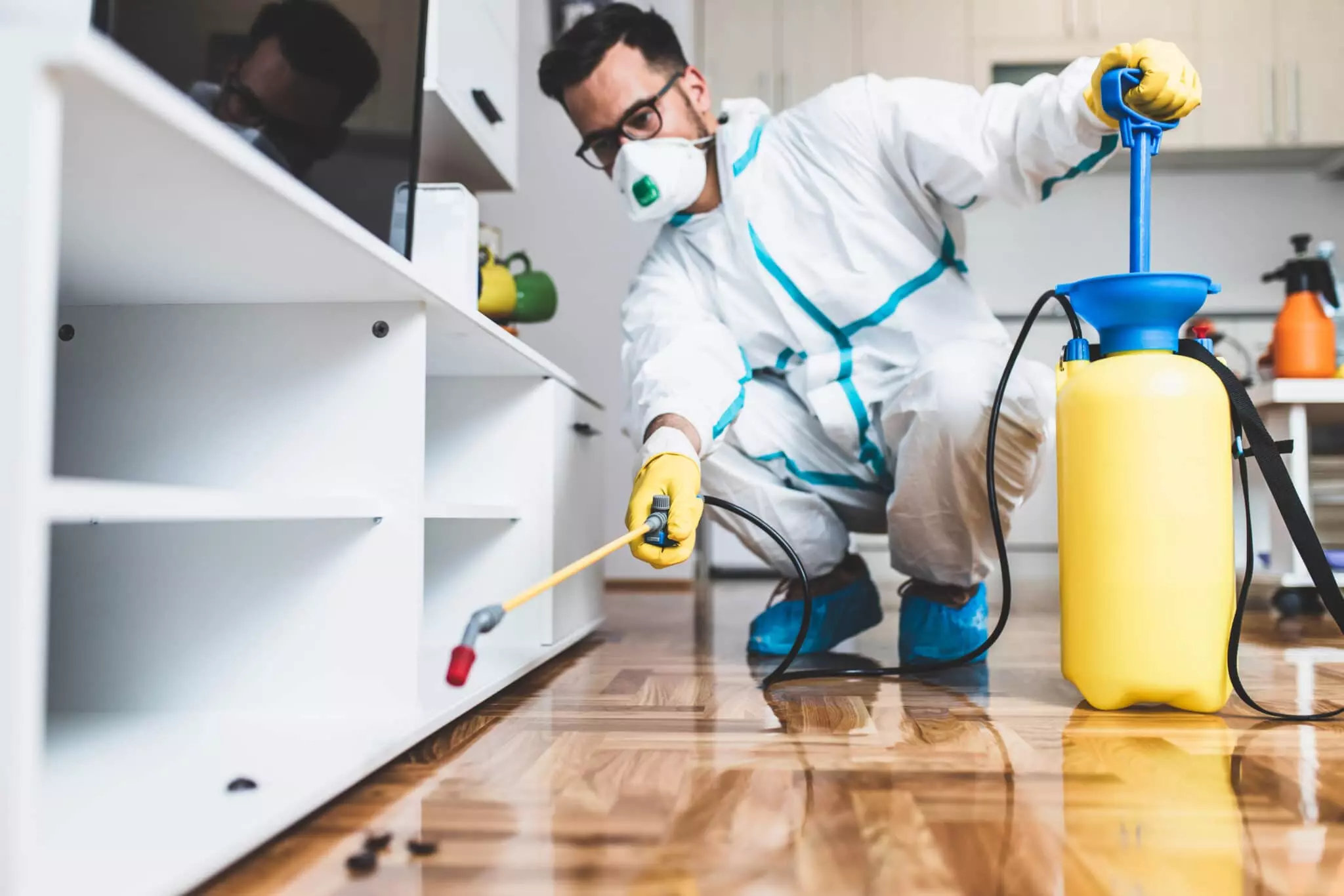Grasping the Art of Insect Control: Proven Techniques for Long-Term Avoidance and Eradication
Parasite problems can be a consistent difficulty for businesses and home owners alike, needing a calculated method to effectively take care of and get rid of these unwanted burglars. By grasping the art of pest control via tested techniques for long-term avoidance and removal, one can establish an aggressive protection versus potential risks. Understanding the actions of pests, applying incorporated pest monitoring techniques, and making use of natural solutions are simply a few vital elements necessary to achieving long-term success in this venture. Nevertheless, the intricacies of preserving tidiness, performing routine evaluations, and attentive tracking play equally crucial functions in sustaining a pest-free setting. As the battle versus pests remains to develop, taking on a detailed method comes to be extremely important in securing your property from possible harm.
Recognizing Pest Habits
To efficiently carry out parasite control approaches, it is crucial to understand the detailed habits exhibited by numerous bugs in different environments. By researching these habits, insect control specialists can recognize the most prone points in the parasite's life cycle to target treatments a lot more properly.
For example, rats like rats and computer mice are nocturnal creatures that like dark, private spaces close to a food source. a1 pest control portland bed bugs. Understanding this, parasite control specialists can concentrate on securing access points and removing food attractants to deter these insects. On the other hand, bugs such as cockroaches flourish in warm, damp areas with access to water. By dealing with wetness problems and securing fractures and gaps, problems can be substantially decreased.
Carrying Out Integrated Parasite Management
Implementing Integrated Pest Management involves making use of an all natural approach to address insect problems by integrating different control strategies and techniques. This technique emphasizes prevention, monitoring, and control of bugs with a combination of biological, cultural, physical, and chemical interventions. By integrating multiple methods, Integrated Insect Management (IPM) aims to reduce making use of pesticides while efficiently handling pest populations.
Prevention is also a basic principle of IPM, concentrating on eliminating variables that draw in parasites, such as water, food, and shelter. Routine monitoring and assessment are vital to spot parasite invasions early and prevent them from rising.
Additionally, IPM advertises making use of sustainable and ecologically pleasant insect control methods to minimize injury to non-target organisms and the bordering environment - a1 portland bed bug exterminator. By embracing an Integrated Parasite Management strategy, services and people can effectively manage insects while reducing reliance on chemical pesticides
Using All-natural Solutions
Building upon the structure of Integrated Parasite Management, a shift towards making use of natural remedies provides a green method to pest control. Natural solutions harness the power of nature to discourage and eliminate bugs without the usage of extreme chemicals that can harm the environment, humans, and valuable microorganisms.

Additionally, planting pest-repelling plants like marigolds, lavender, and mint around yards and homes can aid hinder bugs normally. These plants emit smells that pests locate undesirable, driving them away without the demand for chemical treatment.
Keeping Sanitation and Health

Executing a regular cleaning timetable and making certain all members of the household or staff members are enlightened on correct health practices can go a lengthy way in parasite prevention. By maintaining sanitation and health standards, the setting ends up being less congenial to pests, inevitably sustaining long-lasting insect control initiatives.
Routine Assessments and Monitoring
Routine examinations and checking play a vital duty in proactively identifying and resolving potential parasite issues before they escalate. By conducting routine examinations of both the interior and outside of a residential property, pest control experts can detect early indicators of infestations, bug access points, and problems for parasite task. Monitoring entails making use of traps, baits, and various other tools to track insect task levels and types existing on the facilities. This information is invaluable for determining one of the most reliable treatment methods and evaluating the success of parasite control techniques gradually.
Consistent monitoring permits for the early discovery of pest problems, making it possible for quick intervention to avoid prevalent invasions that can be difficult and costly to eradicate. In addition, routine inspections and checking assistance to follow governing requirements and keep a risk-free, pest-free environment for residents. Implementing a positive approach via routine examinations and tracking is a keystone of efficient parasite administration, giving peace of mind and lasting security versus insect hazards.
Conclusion
To conclude, mastering the art of parasite control involves understanding bug behavior, carrying out integrated insect monitoring, using natural treatments, keeping tidiness and health, and conducting normal inspections and tracking. By adhering to these proven methods for long-term prevention and obliteration, a1 portland bed bug exterminator individuals can properly manage insect problems and create a healthier and more secure setting for themselves and their environments.
To effectively carry out parasite control techniques, it is crucial to comprehend the complex actions exhibited by different pests in various environments (a1 portland pest control bed bugs). By examining these actions, insect control experts can recognize the most at risk points in the pest's life cycle to target interventions extra effectively
Implementing Integrated Pest Management includes using an alternative technique to deal with bug problems by integrating different control methods and techniques. By preserving sanitation and health requirements, the setting becomes less friendly to insects, eventually sustaining lasting parasite control initiatives.
By carrying out routine examinations of both the interior and exterior of a property, bug control specialists can spot very early indicators of problems, parasite access factors, and conditions helpful to parasite task.